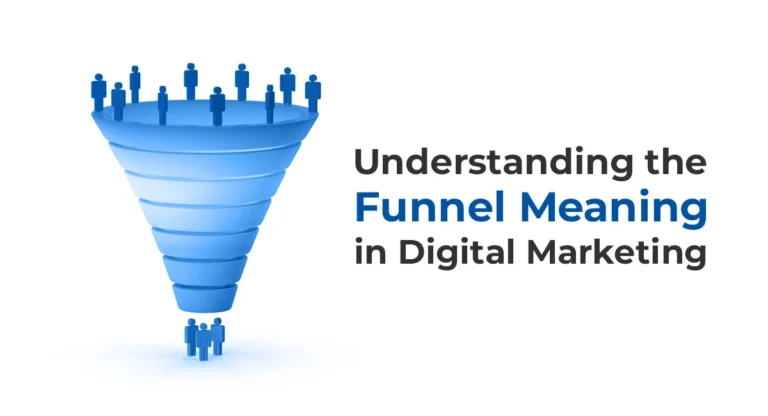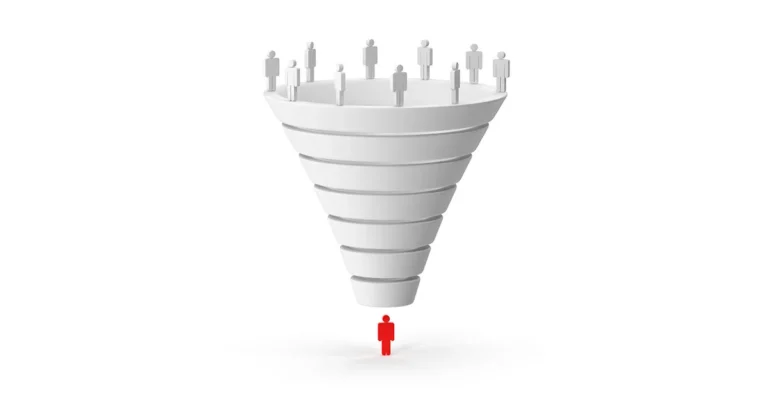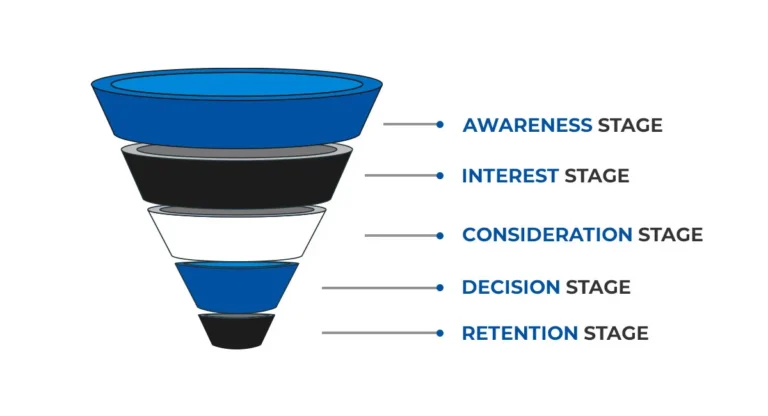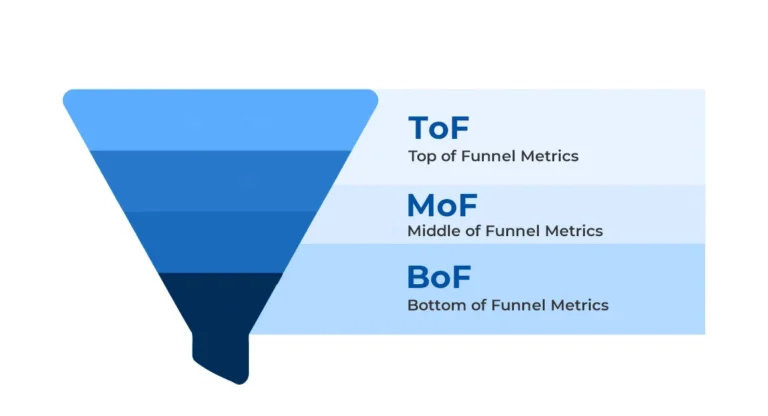Understanding the funnel meaning in digital marketing is essential for brands aiming to boost engagement, conversions, and sales.A marketing funnel in digital marketing illustrates the systematic journey a customer follows—from the initial awareness of a product to the final purchase decision. This guide will explain everything you need to know about the marketing funnel in digital marketing and provide an in-depth look at the digital marketing funnel stages to help you craft strategies that drive measurable results.
Table of Contents

The funnel meaning in digital marketing refers to a visual framework that represents a customer’s journey with a brand. The funnel metaphor is used because the process starts with a large number of potential customers at the top and gradually narrows down to a smaller number of converted customers at the bottom. Essentially, it mirrors the way businesses attract prospects, nurture their interest, and convert them into loyal customers.
The marketing funnel in digital has become a cornerstone of any effective strategy, as it allows businesses to segment their audience at each stage and optimize their approach for higher success rates.

The marketing funnel in digital marketing is crucial for understanding how prospects move through various stages before taking the desired action. Here’s why businesses rely on it:
With the increasing competition in the digital space, understanding the digital marketing funnel can help brands optimize their efforts for better ROI.
The digital marketing funnel stages consist of various levels through which customers pass, from awareness to conversion. Let’s break down each stage:
The awareness stage is the top of the digital marketing funnel, where prospects first discover your brand, product, or service. At this point, the audience may not yet be aware that they have a need or problem to solve.
Strategies for the Awareness Stage:
At this stage, the goal is to grab attention and introduce your brand to potential customers.
Once a customer is aware of your brand, they move into the interest stage of the digital marketing funnel stages. Here, they begin exploring more about your offerings and assessing if your product meets their needs.
Strategies for the Interest Stage:
Here, businesses should focus on nurturing leads with valuable information to develop trust and interest.
In the consideration stage of the marketing funnel in digital marketing, prospects actively compare options and evaluate which solution is the best fit for their needs.
Strategies for the Consideration Stage:
At this stage, you need to establish authority and show why your solution is the best choice.
The decision stage is the most critical part of the digital marketing funnel. At this point, prospects are ready to make a purchase decision, but they may need an extra push to convert.
Strategies for the Decision Stage:
By removing any doubts and offering value, you can guide prospects to the conversion stage.
The final stage of the digital marketing funnel stages focuses on customer retention and loyalty. Acquiring new customers is important, but retaining existing ones is even more profitable.
Strategies for the Retention Stage:
A well-designed retention strategy ensures long-term success and sustainable growth.
The marketing funnel in digital marketing provides a systematic approach to converting leads into customers while improving customer retention. By breaking the buyer’s journey into distinct stages, businesses can:
The digital marketing funnel allows brands to prioritize customer needs and create impactful marketing campaigns that drive results.

To implement a successful marketing funnel in digital marketing, you need to consider the following key steps:
By combining data-driven insights with compelling content, businesses can create a winning digital marketing funnel strategy.
To evaluate the performance of your digital marketing funnel, it’s essential to measure key metrics at each stage:

Tracking these metrics ensures you can make data-driven improvements to your funnel.
The funnel meaning in digital marketing isn’t just a buzzword; it’s a proven approach to understanding customer behavior and optimizing marketing strategies. By breaking down the customer journey into distinct digital marketing funnel stages, businesses can attract, nurture, and convert leads more efficiently.
A well-structured marketing funnel in digital environments helps businesses boost conversions, improve ROI, and build lasting relationships with customers. Whether you’re a small startup or an established brand, mastering the digital marketing funnel is the key to staying competitive in the digital landscape.
Start analyzing your funnel today and leverage its power to take your business to the next level.
Incorporate images, charts, or infographics to make your article visually appealing.
Eliminate redundant words and polish your sentences for maximum impact.
Analyzing examples can help you grasp the write an article format better.
Nirbhay Chauhan is a Performance Marketing and ROI Specialist with expertise in SEO, PPC, and media planning. With a passion for data-driven strategies, Nirbhay helps businesses scale by optimizing their marketing efforts to deliver measurable results. His extensive experience in driving online growth and maximizing ROI makes him a trusted partner for businesses looking to elevate their digital presence.